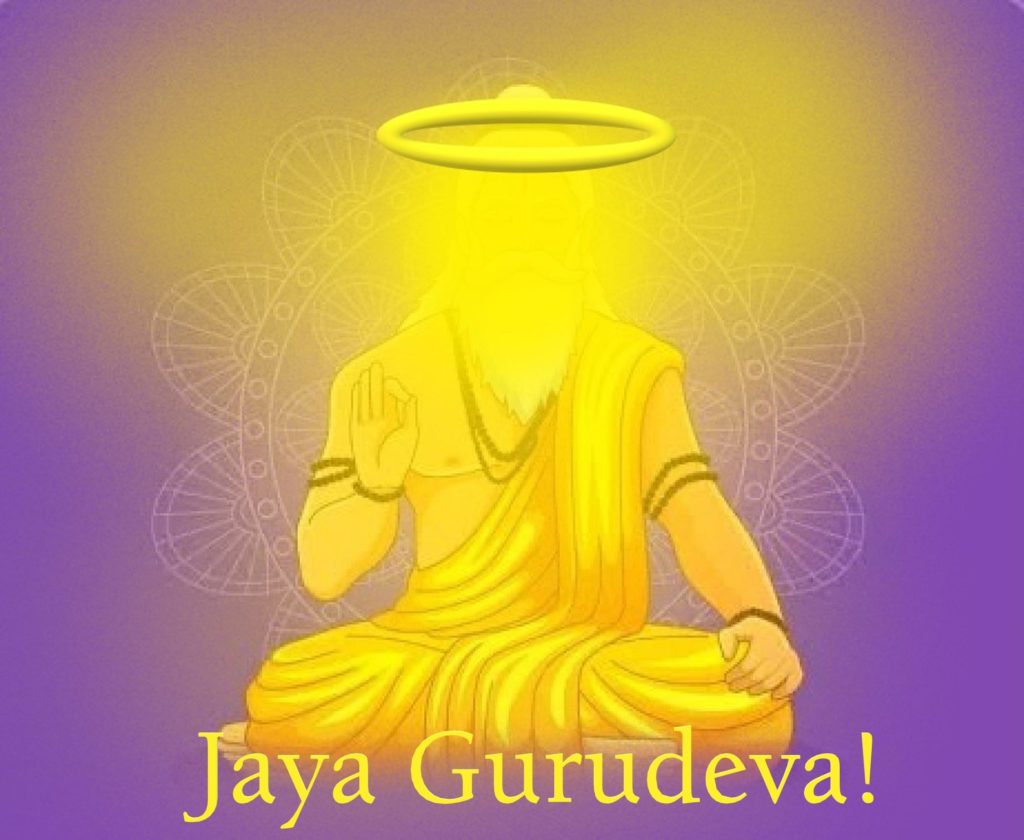“Śrīla Prabhupāda’s Kīrtana Standards,” installment 22

The chanting of “Jaya Gurudeva” has become popular in ISKCON, but like other chants not received directly from Śrīla Prabhupāda, this one has its problems. Kripamoya Prabhu gives the following account:
February 1977, Gaura Pūrṇimā. Before the first maṅgala-ārati, Pañca-dravida Swami had been chanting bhaja bhakata vatsala śrī gaura-hari for the maṅgala offering, before the ārati. During the maṅgala-ārati kīrtana someone had been chanting —for Prabhupāda, of course—Jaya Gurudeva. And Bhavānanda came down after maṅgala-ārati,and during the announcements he brought two messages from Prabhupāda, because Prabhupāda was just on the floor upstairs and had heard. So Prabhupāda said, firstly, you don’t sing Bhoga Ārati for the maṅgala-ārati sweet offering; secondly, you do not sing Jaya Gurudeva. Gurudeva is impersonal; it can mean anyone. If you want to indicate your spiritual master, you call him by name. So it is “Jaya Prabhupāda.”
Then afterwards he also said that if you want to sing Jaya Gurudeva, you should sing it before singing Jaya Prabhupāda so you finish with the personal name of the spiritual master.
But in our multi-guru ISKCON, sometimes the generic form of Jaya Gurudeva, as a glorification of allthe ISKCON guru-vṛnda, is chanted by the disciples who are leading kīrtana, not before Prabhupāda’s name but after. So it means that if you’re a Prabhupāda disciple who’s now at a kīrtana being led by a junior, you are then guilty of contravening Prabhupāda’s explicit instruction, because the gurudeva that you’re being asked to chant cannot indicate your gurudeva if you sing it after Jaya Prabhupāda. It may be a small thing, but it’s one of those things that has bothered Kripamoya Dāsa for many years since he first heard it in Māyāpur, and now it has caught on.1
Harikeśa writes:
He objected to the usage of “Jaya Gurudeva” since it was a direct insertion into our movement from the sahajiya sampradayas in Bengal who always say things like “Jaya Gurudeva,” without referring to any particular guru. Prabhupada criticized this as impersonal and did not want it chanted by his disciples. “Who is the guru?”, he would challenge.2
Bhavānanda Prabhu relates:
During a gurupuja in Mayapur Acyutananda Maharaja started chanting Jaya Gurudeva, etc. Prabhupada stopped us and said, “What is this ‘jaya gurudeva’ ? What Gurudeva? Who gurudeva? This is mayavad and should not be done.”3
In 1972 Śrīla Prabhupāda also wrote to Bhavānanda Prabhu:
One thing, on the invitation card you have written All Glories to Our Guru Maharaja. This is impersonalism. As soon as we offer obeisances to guru, the name should be there. We are strictly personalists. The sahajiya’s, they write Glories to Guru. Why you are learning this impersonalism, who has taught you? Daily I am offering obeisances to my Guru by vibrating his real name, Srila Bhaktisiddhanta Sarasvati, otherwise it is impersonal.4
In summary: Śrīla Prabhupāda disapproved of the chanting of “Jaya Gurudeva!”
Though in ISKCON temples we don’t chant the names or pranāma mantras of gurus who come in succession after Śrīla Prabhupāda, there’s no reason we cannot do so in kīrtanas at home with our family or why the disciples of a particular guru cannot chant his name and pranāma mantra when they gather elsewhere on their own. In such circumstances, there is no need of “Jaya Gurudeva!” One may chant the spiritual master’s real name.
Notes:
1 I transcribed this story from a recording of Kripamoya Prabhu telling it.
2 Harikeśa Swami, “Important Instructions,” p. 16.
3 Bhavānanda Dāsa, personal communication, October 17, 2021.
4 Letter to Bhavānanda, July 14, 1972. Of course, Śrīla Bhaktivinoda Ṭhākura wrote a song called, simply, “Gurudeva!” and Śrīla Prabhupāda named a disciple “Jaya Gurudeva.” Still, as Kripamoya, Harikeśa, and Bhavānanda testify, Śrīla Prabhupāda disapproved of chanting “Jaya Gurudeva!” in kīrtana, especially after the chanting of “Jaya Prabhupāda!”

You must be logged in to post a comment.